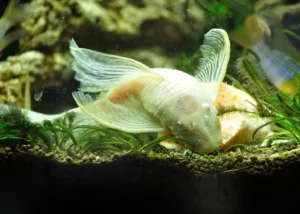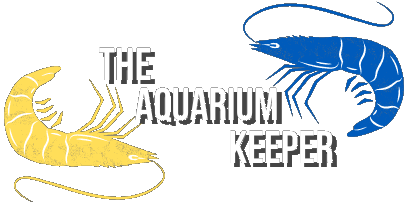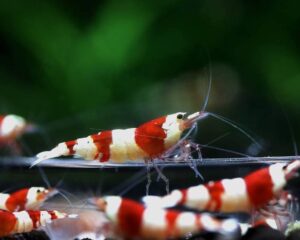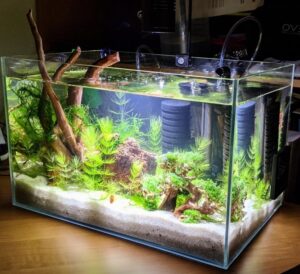
Goldfish With Bump On Head: Possible Causes, Dangers & Treatments

Writer at The Aquarium Keeper
Many aquarists see a bump growing on their goldfish head and fear what might be happening. Bumps on the goldfish head have different causes, which can be benign or malignant, and both require attention from the aquarist. This article will cover everything about goldfish with bumps on the head, possible causes, dangers & treatments.
Common Causes of Lumps on The Head of Goldfish
Lumps on the head of goldfish can appear for different reasons. Some cause no problems, others are dangerous, and you should be treated with urgency.
Possibility of Tumor
One of the most common reasons for bumps to form on the head of goldfish is the presence of tumors. These tumors can be benign, such as those known as neurofibromas.

Neurofibromas and other types of benign tumors are common in goldfish and generally do not cause direct problems – although they can negatively impact the fish (mainly with mobility and vision problems). The bump on the head of the goldfish can also form malignant tumors, which require immediate treatment and can be fatal.
You might also like to read: Can Guppies Live With Goldfish?
Inadequate Water Parameters And Their Impact
Water quality is essential for the goldfish’s health and the tank’s stability. Inadequate water parameters (such as high levels of ammonia or non-ideal pH or temperature) can lead to a series of health problems (such as infections) that can cause lumps to develop on the head of the goldfish.
Decorations as a Source of Injuries
Decorations are present in practically all aquariums. Some decorations, such as those with points or rough surfaces, although they serve to make the environment more attractive, can also be a source of injury to fish.

Goldfish are clumsy-swimming fish and can hit or get stuck in decorations, causing head trauma and injuries that result in lumps. Therefore, it is vital to choose the decor carefully to avoid such incidents.
Tank Mates
Goldfish are peaceful fish with maintenance characteristics that differ slightly from most aquarium fish. For this reason, tankmates must be chosen carefully. Aggressive tank mates may harass goldfish or scare them into hitting aquarium glass and decorations, causing injuries and bumps in the head.
Parasites
Parasites are an uncommon cause for bumps in the goldfish head. Many varieties of goldfish can be susceptible to some parasites such as Lernaea and Argulus. These parasites are associated with low water quality and are relatively easy to control. In addition to causing irritation and injuries that result in lumps, as they are directly on the fish’s skin, the appearance can be similar to a large bump on the head of a goldfish. It is essential to be aware of signs of parasite infestation.
Goldfish Varieties
Breeders developed (and still develop) practically all existing goldfish varieties in captivity. Breeders create those varieties by selecting desired fish characteristics and breeding similar-looking fish to establish those characters in the offspring.

Among many body features, as well as the color and shape of fins, the head shape of goldfish is also highly valued and variable. That’s why many varieties on the market have a pronounced growth on the head, literally a bump (could also be a lump, when it’s formed from the inside).
You will find this in well-known varieties such as lionhead, oranda red cap, phoenix, and hamanishiki. These characteristics are natural for these varieties, do not cause future problems, and should not be confused with lumps caused by health problems.
Dangers Associated With Bumps on The Head of Goldfish
Now that we’ve seen the causes of bumps on goldfish heads, it is time to talk a little about what these bumps cause and the dangers associated with this problem.
Swimming And Mobility Problems
Because they are abnormal growth in fish, lumps on the head of goldfish can cause problems with vision, mobility, and breathing. They mainly affect the ability of goldfish to swim and feed properly.
Depending on the location and size of the bump, these problems affect the goldfish’s quality of life, causing stress. Stress is an open door to other problems like illnesses and infections.
Infection Risks
Wounds, traumas, bumps, and lumps on the head are entry points for various infections, such as bacterial and fungal. The aquarium environment naturally contains many disease-causing microorganisms. When we keep the water in good quality and the fish well nourished, these pathogens will not cause problems.
In environments with inadequate water quality or stressed fish, the risk of infection increases considerably. Monitoring your fish’s health and keeping your aquarium water clean is crucial to preventing infections.
Need For Treatment
Observation is vital for understanding and diagnosing the formation of bumps in the goldfish head. When you notice the first sign that something in the fish’s head is not right, you should seek help from a professional as soon as possible. Only a professional, like a veterinarian specializing in aquatic animals, can diagnose the cause of the bump and prescribe the appropriate treatment. You must strictly follow the veterinarian’s instructions to ensure the goldfish’s recovery.
You might also like to read: Can Angelfish Live With Goldfish Together?
Treatments For Bumps on The Head of Goldfish
After diagnosing the cause of the lump on the goldfish’s head, the next step is to begin treatment. You must always consult a professional to help you with the correct diagnosis and treatment and follow the treatment instructions as described.
Specialized Veterinary Treatment
Medical treatment is often necessary to deal with bumps on the goldfish head. A specialized veterinarian will choose the best treatment for your particular situation. Treatment may include prescribing appropriate medications or surgery. In some cases, the solution will be some type of procedure, such as abscess drainage or surgery to remove the tumor (if necessary).
Bump in the goldfish head, as we have seen, has several causes, and each cause has its appropriate treatment, which only a professional can describe. It is essential to strictly follow the instructions of the animal health professional, this is the only way to guarantee the effectiveness of the treatment.
Finding a professional capable of dealing with these goldfish problems may not always be easy, but, thanks to technological advances, searching the internet, research sites and forums, and talking directly to other fish keepers makes finding a professional easier.
Maintenance of Water Parameters And Environments
Regardless of the proposed treatment, maintaining good water quality and parameters within ideal levels for goldfish (68° to 74° F, 6 to 7.5 pH, and a tank above 30 gallons) is essential during treatment. Clean water (free from unwanted compounds such as ammonia, nitrite, nitrate, and phosphates) with stable parameters contributes to the recovery of the fish and the maintenance of well-being.
Quality Food
Often neglected, correct, varied, and good quality food plays a crucial role in maintaining and recovering goldfish health. Goldfish should have commercial foods of plant origin, specialized for the species, and high quality as the basis of their diet. Fresh foods such as nori seaweed, carrots, peas, and other vegetables should be served as snacks at least three times a week.
Foods of animal origin like bloodworms, and nauplii should not be used routinely; offer this type of food to goldfish 2 to 3 times a month. Remember that you can always consult your veterinarian about the appropriate diet for your goldfish during treatment. The correct diet, rich in the nutrients that goldfish need, can strengthen the immune system and promote healing.
Removal of Dangerous Decorations
To avoid additional trauma, choose decorations that are safe for goldfish. Consider temporarily removing decorations that may pose a health risk to your goldfish from the aquarium to prevent further injury. The aquarium must contain a large open area for the fish to explore and swim freely. The safety and well-being of your fish must be a priority over aesthetics.
Bad Tankmate Removal
In cases of repeated aggression by tankmates, problematic tankmates must be recognized and removed from the aquarium as quickly as possible. Fish that show symptoms of illness should be isolated and treated immediately in a hospital aquarium. In addition to preventing infections, these measures can help reduce stress and injuries in sick goldfish.
Parasite Control Strategies
If the cause of the lump on the head is identified as parasites, follow your veterinarian’s instructions for appropriate treatment. In these cases, treatment generally consists of physical removal of the parasites, in addition to medicated baths and specific medication. In the case of parasites, we must increase the frequency of siphoning and changing water, as many skin parasites release eggs that remain in the substrate, causing future reinfestations.
Personal Experience And Final Thoughts
From my own personal experience, I had a small basic goldfish, that I later gave away to someone who owned a pond. The goldfish developed a small bump over the span of a week on its head, but with extra tank maintenance, quality food, and good care, the bump simply disappeared.
If you see that what you are doing for your goldfish is not enough, I highly suggest finding a capable veterinarian, who could diagnose the problem and suggest possible treatments.
Frequently Asked Questions
Can I Treat The Lump on my Goldfish Head at Home?
If proper maintenance and care do not help the bump go away, or if the bump is growing in size, I highly suggest simply finding a veterinarian who could help your goldfish heal.
How Long Does it Take For a Goldfish to Recover From a Lump on The Head?
The time it takes for a goldfish to recover from a lump on its head can vary depending on the cause and severity of the lump. Follow your veterinarian’s instructions and be patient during the recovery process.

Thank you for reading my blog post. This website was created with the sole intention of providing quality information regarding fishkeeping. I have been in the fishkeeping hobby for 8 years, and through many trials and errors as well as online research I gathered a lot of information, which I want to give back to the community.





